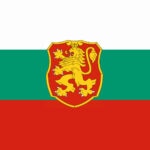
Cadmium
343 metr. t


343 metr. t

104 020 metr. t

380 000 metr. t

21 420 metr. t

17 910 metr. t

9 695 kg.

38 661 kg.

28 410 900 metr. t
Extractive activities are traditional in the Bulgarian economy.
Mining activities are the basis of the extractive sector, which includes: the extraction of underground natural resources, primary processing and transportation to the processing plants. Unfortunately, the territory of our country is not distinguished by a large number and rich in precious substances and natural raw materials. The restriction of the raw material base is one of the most important limiting factors in the Bulgarian economy. The main types of extracted raw materials are lignite coal, polymetallic ores, lead zinc and copper ores, kaolin, gypsum, limestone, quartz sand, marble, bentonite, etc. As per the Bulgarian Chamber of Mining and Geology, the total number of deposits is 595.
They are allocated as follows:
• Metallic Minerals – 206;
• Non-metallic minerals – 115;
• Oil and natural gas – 3;
• Rock-lining materials – 51;
• Building materials – 151
In 2020 the mining industry formed 5% of the country’s GDP, despite the fact that it employs only 4% of the employees in the Bulgarian industry [11]. A distinctive mark of the industry is its relatively high productivity. After power engineering and information
technology, the mining industry is in third place in Gross value added per worker. In the last four years, it accounts for 4% of the production of industrial enterprises in the country.
In terms of the overall turnover of the mining and quarrying industry in Bulgaria, it experienced a significant increase in 2020. The turnover rose by an additional 310.4 million euros, reaching a total of 1.5 billion euros for the year.